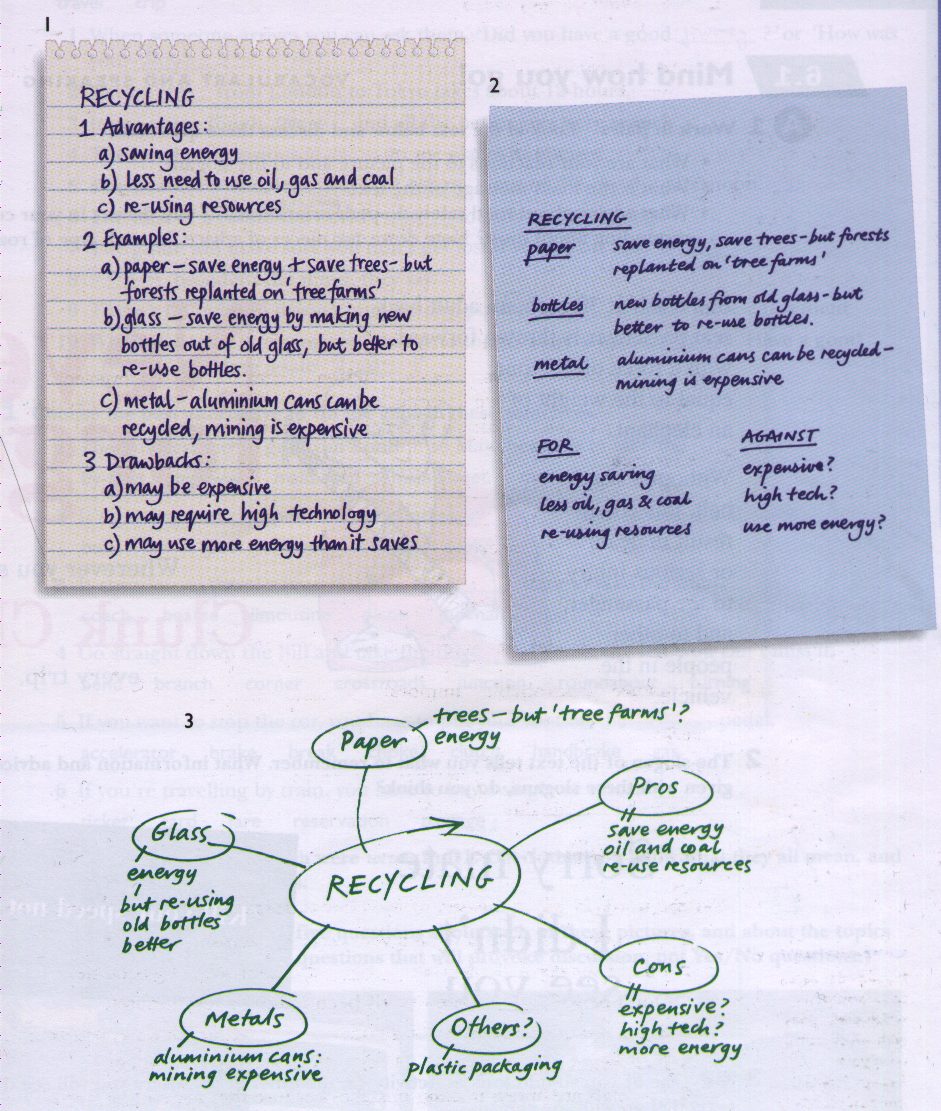Paragraphs
In the exam you will have to write two compositions. These should be divided into paragraphs.
A new paragraph may signal a new direction or a new aspect of the topic. Or it may just be a way of making a long passage more readable. Long, uninterrupted texts are harder to read and do not look interesting.
If you leave two or thee blank lines between each paragraph, you will have enough room to add an extra sentence later, if you think of an extra idea you want to include. And do not forget to leave enough room for your teacher to write in corrections, comments and suggestions.
Making notes
The key to writing better compositions is deciding what to write before youput pen to paper - by making notes before you start. Notes help you to organise your thoughts before you begin writing. And they help you to remember your ideas while you are writing a composition.
Making notes before you start takes a few minutes but these notes can save you time later. And if your mind goes blank while you are writing, you can refer back to the notes. But most importantly, your reader will find it easier to follow your ideas if they are well organised.
Advantages and disadvantages
If you know a lot about a topic, you may be able to think of lots of pros and cons - more than you can fit into the amount of words given. In that case you will have to select which points to include and which to leave out. Your essay should not look like a shopping list, and this is why reasons or examples are necessary to back up your points.
Short or long sentences?
Short sentences are easier to write than long, complex ones. Often short sentences are easier to read and understand too. But very short sentences may look too simple - even childish.
Writing against the clock
In the exam, you will have to write two compositions in 1 hour 30 minutes - including the time you need to read the paper and decide which question to choose, making notes before you write and checking your work afterwards.
From now on, whenever you write a compositions, time yourself. Try to finish every composition within 40 minutes, including time for thinking, planning and making notes - plus five minutes at the end for checking it through and making small changes. If you cannotfit all this into 40 minutes yet, try to lose five minutes each time you do a composition until you can. But do not sacrifice too much planning time or time for checking.
In the exam, it may be best to make notes on both compositions at the beginning, in case your mind goes blank later. Make sure you include all the relevant information.
Including relevant information
When writing a composition, include only ideas and information that are relevant - if you are writing a composition about "my ideal job", there is no point in writing about all the jobs you would hate to do.
Checking your work
When you check your compositions through for mistakes, you need to notice and correct spelling errors and grammatical mistakes. Some of these may just be careless mistakes or slips of the pen - others may be harder to recognise.